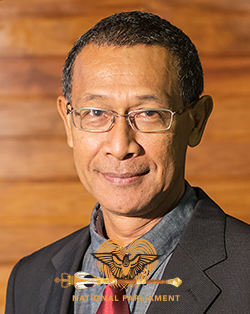The contentious PNG company tax or ‘super tax’ on the country’s big players in the banking and telecommunication sectors finally got the green light from Parliament Wednesday, now making it a law.
While the tax applies to companies that have 40% of the market share in two sectors, as it stands it affects Bank South Pacific (BSP) and Digicel.
Formerly known as the ‘dominant industry levy’ the law now calls it the additional company tax, which Treasurer Ian Ling-Stuckey said indicates the view of super-recurrent and capital profits being earned in certain sectors.
The tax now means BSP will have to pay K190 million (US$53 million) and Digicel and Telstra K350 million (US$99 million).
Ling-Stuckey said: “We know that some will not like the outcomes, but this is a sovereign acting in the interests of all the people of PNG in this critical work of budget repair in these most extraordinary and difficult of times.
“We have had discussions with the three major companies likely affected by the proposed new tax – BSP, Digicel and Telstra.
“Through our discussions with Telstra, they have agreed that we will raise more than the original levy of K95 million (US$26 million) through additional taxes worth at least K41 million (US$11 million) each year, as well as major infrastructure investment program including an additional 115 towers through-out PNG,” he said.
Ling-Stuckey said that the K350 million (US$99 million) tax is based on fair recognition of the high historic levels of overall profitability from Digicel Pacific after allowing for both recurrent and capital profits.
“The tax imposed of K350 million (US$99 million) is a judgment based on multiple factors, it is less than half of the net interest value of the on-going levy that we initially proposed”.
In regards to BSP, Ling-Stuckey said the tax is not due until 30 September of this year.
“We want to make it clear, though, we consider it is fair for the banking sector to pay more, and by far the biggest winner is BSP due to its high level of market concentration.
